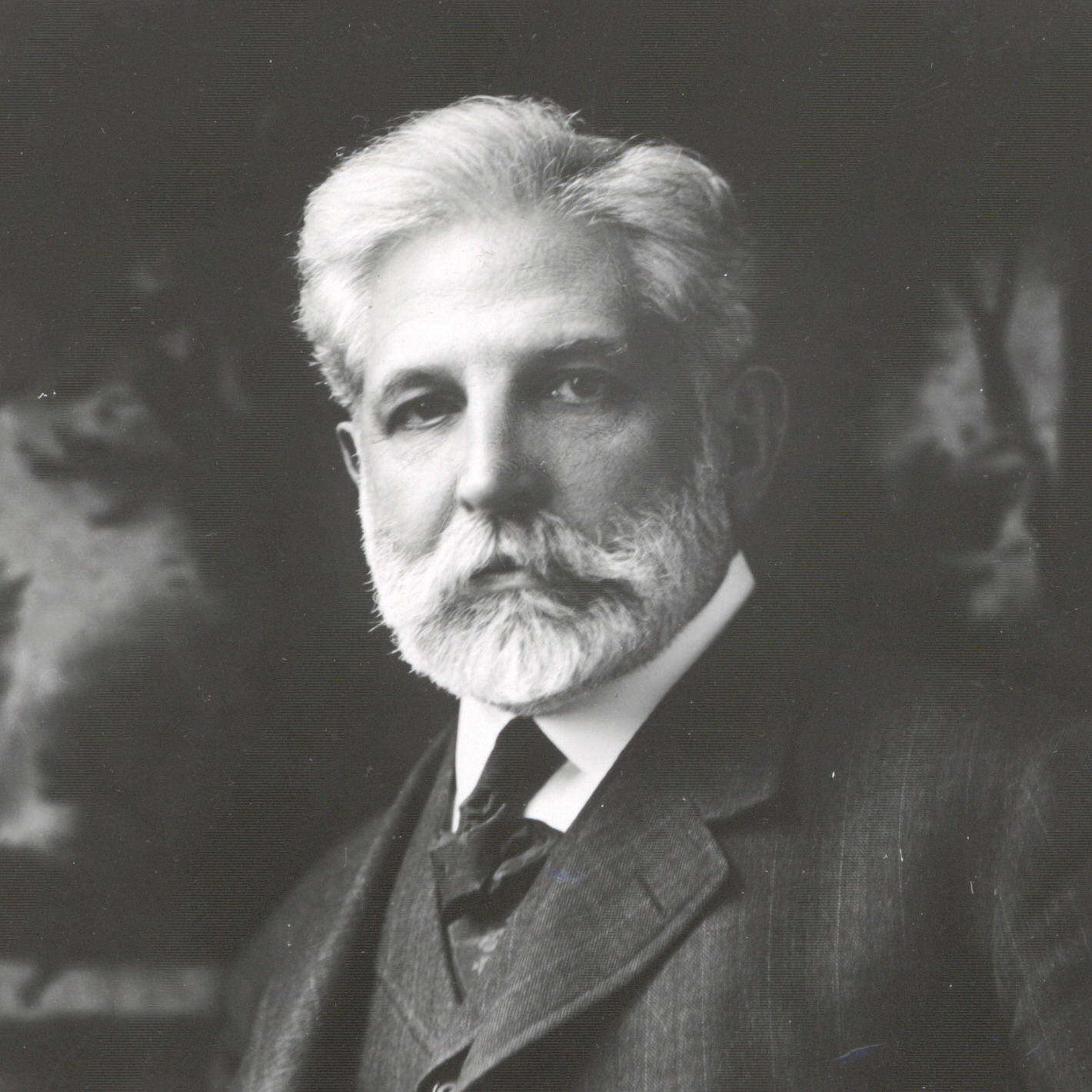Robert S. Brookings was born and acquired his early education in Cecil County, Maryland, before moving to St. Louis, Missouri at age 17. He began as a clerk and later traveling salesman for Cupples and Marston, manufacturers and distributors of woodenware. In less than four years he became a partner in the firm at age twenty-one and helped build the business into one of the largest wholesale traders in the United States.
He achieved remarkable success in business at an early age, and began to reach out for a broader perspective through education and travel. At 34, he spent a year in Berlin and traveled throughout Europe, nursing a dream to become a musician. He eventually returned to America and resumed his successful business career that carried him into the twentieth century.
As a civic leader and philanthropist, Brookings turned his creative energy to building Washington University and other St. Louis institutions until, with the coming of World War I, he moved to Washington, D.C. and onto the world stage. He served on the new War Industries Board as commissioner of Finished Products and chairman of the Price Fixing Committee. In this role he became the link between the government and hundreds of industries. He achieved remarkable results under very difficult circumstances, and for his war service he was recognized with the U.S. Distinguished Service Medal, the French Legion of Honor, and Italy’s Commander of the Crown.
His work within the government during the war showed him the need for improved economic research and a trained corps of civil servants. In 1916, Brookings worked with other government reformers to create the first private organization devoted to the fact-based study of national public policy. The new Institute for Government Research became the chief advocate for effective and efficient public service and sought to bring “science” to the study of government.
Brookings created two sister organizations: the Institute of Economics in 1922 and a graduate school in 1924. In 1927, the institutes and the school merged to form the present-day Brookings Institution, with the mission to promote, conduct, and foster research “in the broad fields of economics, government administration, and the political and social sciences.”
***
